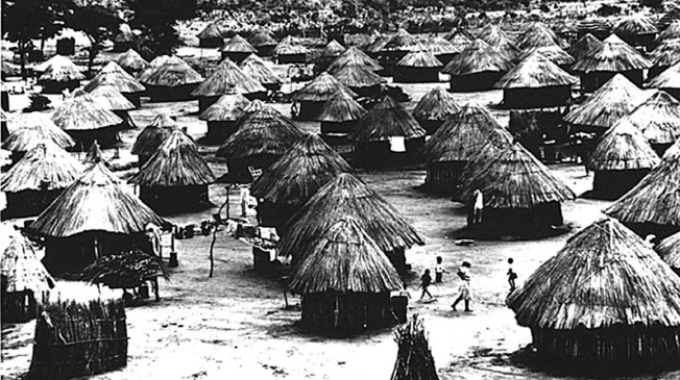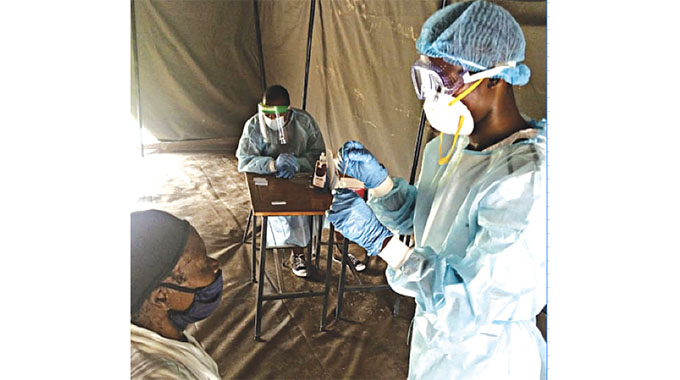Road to freedom was no stroll in the park

Isdore Guvamombe-Saturday Lounge Reflections
BACK in the village, in the land of milk, honey and dust or Guruve, moonlight slanted down through the leaves and blossoms of the thicket, making whimsical coloured patterns that flickered on the ground.
Under a normal night excursion, the moon would have been magnificent, but our circumstances needed it to be humble and soft. Not shouting!
The war was ragging and the pall of death was harshly all over.
Tree leaves cracked under our feet and I was particularly worried about the creepy creatures, but my high cut canvas shoes gave me some comfort. It was silly cold.
A faint warm breeze stirred the sleepy leaves, bringing with it fragrance of flowering grass and trees, and a breath of something languid, inducing idleness, voluptuousness and strangeness.
The October night was unique.
As I cast my eyes on the forest, there was a ghostly figure of the day itself. I watched the forest again and again. It was tinged superfluous!
The baskets of food were heavy and hot. The food was still steaming. Grandmother walked and broke into fox trot, her bare feet leaving tractive footprints. I followed closely trying to keep pace with her. It was a delicate move. She was deft footed.
The combatants were hungry and waiting for the food. The war was hot and they needed to eat and move on. They had a target they needed to hit late that night. I carried a basket delicately on my head and a water container dangled from my right hand.
After a short distance, I would change the container from one hand to the other.
Suddenly we came to an open stretch, which was the most dangerous, for Rhodesian soldiers could easily snoop on us.
Grandmother plunged into the open space at the same speed and without looking back or sideways, she increased her speed and the grass was tallish.
Soon we were past the open spaces and we started another forest and the footpath cut across mercilessly, like a sharp knife.
On the verge, I saw the green grass turning a golden hue from the dainty patches of light that flickered from the moon and quivered as if they were living.
The moon was now about to set. Then there were fire-coloured butterflies that made the grass under the trees look like it was about to catch fire.
They flew effortlessly, but seemingly without purpose. My mind somehow told me they had a purpose, known to them.
Suddenly a voice asked for a password and grandmother quickly answered correctly. Soon we found ourselves at the base.
The Zimbabwe National Liberation Army, the military wing of Zanu PF, had a huge base there.
It was near Chimufombo and carefully located at the confluence of Chapfeni and Mupinge rivers.
The frogs that proffered a cacophony of sounds as we approached went dead silent. They were probably listening to our conversation with the combatants. Establishing a base near a river was strategic. The frogs always informed about visitors.
When there was no movement and dead silence, they would sing loud like drunken villagers, but as soon as a person appeared, they would shut up.
Back to basics, we tested our food and water as a safety ritual and then the boys, as the combatants were obliquely referred to, shared the food and ate quietly. They were very orderly.
Others lay in positions, guarding the base and they also got their share. Grandmother was asked several questions about the war, the execution of the war and the thinking in the villages.
She was asked about the Rhodesian forces, their frequency and type of weaponry and I was shocked by her knowledge. She answered with confidence. The commander, Cde McDuff Mandebvu, spoke with a soft but authoritative voice.
Soon we left the base, using the same route. Two boys escorted us for some time then suddenly they bade us farewell and were swallowed by the night.
The moon had set by this time. As we approached home, we heard gunshots. Combat. Contact. There was light gunfire, which ran in tot, tot, tot and tot. Then there was a loud bang. It must have been a bazooka. Then there was dead silence. Silence, silence, silence! Cemetery silence. Silence!
Within minutes, many homes had caught fire in the village.
Granaries and huts were burnt by the Rhodesians.
The village was left in ruins. Property too was burnt.
The following morning, we woke up to the sad news of the death of four villagers. Many others were still missing have ran in different direction in the melee.
The next day the villagers were buried in haste as the Rhodesian soldiers rounded up villagers for the Keep, special enclosures built to restrict contact between villagers and freedom fighters.
One-by-one villagers were shoved into the truck, most of them without being given a chance to collect their livestock and pen them in.








Comments